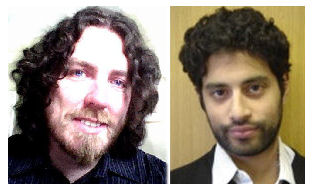 If you are a scholar who has authored a book in philosophy or theology, published by a reputable publishing house, then I want to hear from you if you’re interested in what follows.
If you are a scholar who has authored a book in philosophy or theology, published by a reputable publishing house, then I want to hear from you if you’re interested in what follows.
In the humanities (maybe in other fields too, but who cares), one of the best ways to have a book published is to have an already published scholar take an interest in the project and to recommend it. As this would be the first such project that I have attempted, the advice of someone who has been there and done that would be invaluable.
As indicated above, the type of book I am talking about is a book with high quality essays from a number of writers (up to 15). In order to raise the profile of the project, I would like to have a few/couple of essays in the volume to be contributed by people who are already established scholars with well received published works.
If you are someone who might be able to help in either of these roles, then I want to hear from you. If I don’t hear from anybody through this announcement/request then I will be looking around for advice on who to contact, but if you’re reading this and you think you fit the bill, then this process can be made all the simpler.
What sort of people am I looking for? You’ll need a PhD in philosophy, in theology, or in political science (or something that relates closely to one of these like jurisprudence or religious studies). You’ll need to be active in academia, preferably as a faculty member in one of these areas at an accredited university or college. You’ll have an interest in the relationship between political, moral or social philosophy or law on the one hand, and theology or philosophy of religion on the other. In particular, you’ll have an interest in the subject of religion in the public square. Importantly, you’ll have had works published in these or similar fields, and these works will be generally well received by their target audience.
If you’re interested in contacting me as someone who might take up one of these two roles, the nature of the project is as follows: The book will be a collection of high quality scholarly essays on various aspects of the relationship (or appropriate lack thereof) between religious convictions and social, political and legal arrangements. The book will be written by emerging scholars – people who have graduated with PhDs in their respective fields but who are not yet established in the literature. The book aims to be a serious multi-faceted contribution to the case against the modern western liberal democratic doctrine that religious beliefs should not serve as the basis of political or legal arrangements, doctrines or policies. My own contribution to the work will be an essay arguing that a thoroughgoing secular outlook cannot account for a descriptive doctrine of human equality, and that the doctrine is best construed as one that requires theological presuppositions.
Subjects for other essays in the volume might include:
- The major contributions that religiously motivated laws and policies have made in history to the good of society in the liberal democratic or classical liberal tradition.
- Whether or not there exists a defensible non-religious account of p, where p is some important principle needed to ground a liberal democratic polity.
- Critical and original reflections on an argument or set of arguments for the removal of religious convictions from political and public decision making and policy advocacy.
- Proposals to tackle the issue of competing or clashing religious (or secular) ideologies in a pluralistic democratic society – if we allow political advocacy for religious reasons.
- Difficulties in avoiding religious discrimination in legislation – or the levels of acceptable discrimination.
– as well as many other possibilities.
The ideal publisher for this project would be a major university press (Oxford, Cambridge, Princeton, Yale, Harvard) or mainstream academic publisher in the humanities such as Routledge, Blackwell, or Sage (naturally, these are examples only).
If you might be interested in one of the ways described above, please contact me using the “Contact Us” button over on the right hand side.
Glenn Peoples



 I’m not a physicist or a cosmologist. When Stephen Hawking’s recent book came out, and his media releases gave the impression that he had some new theory and had now shown in some new way that God didn’t create the universe, I made an unwarranted assumption. At first sight, I made the assumption that other atheists who were also physicists would latch onto Hawking’s claims with gusto.
I’m not a physicist or a cosmologist. When Stephen Hawking’s recent book came out, and his media releases gave the impression that he had some new theory and had now shown in some new way that God didn’t create the universe, I made an unwarranted assumption. At first sight, I made the assumption that other atheists who were also physicists would latch onto Hawking’s claims with gusto. Recently I was interviewed on the Theopologetics podcast, which is run by Chris Date. The title of the episode was “Let’s Get Physical,” and Chris invited me to discuss my belief in physicalism as a philosophy of mind from a Christian and biblical point of view. Check out that episode
Recently I was interviewed on the Theopologetics podcast, which is run by Chris Date. The title of the episode was “Let’s Get Physical,” and Chris invited me to discuss my belief in physicalism as a philosophy of mind from a Christian and biblical point of view. Check out that episode 